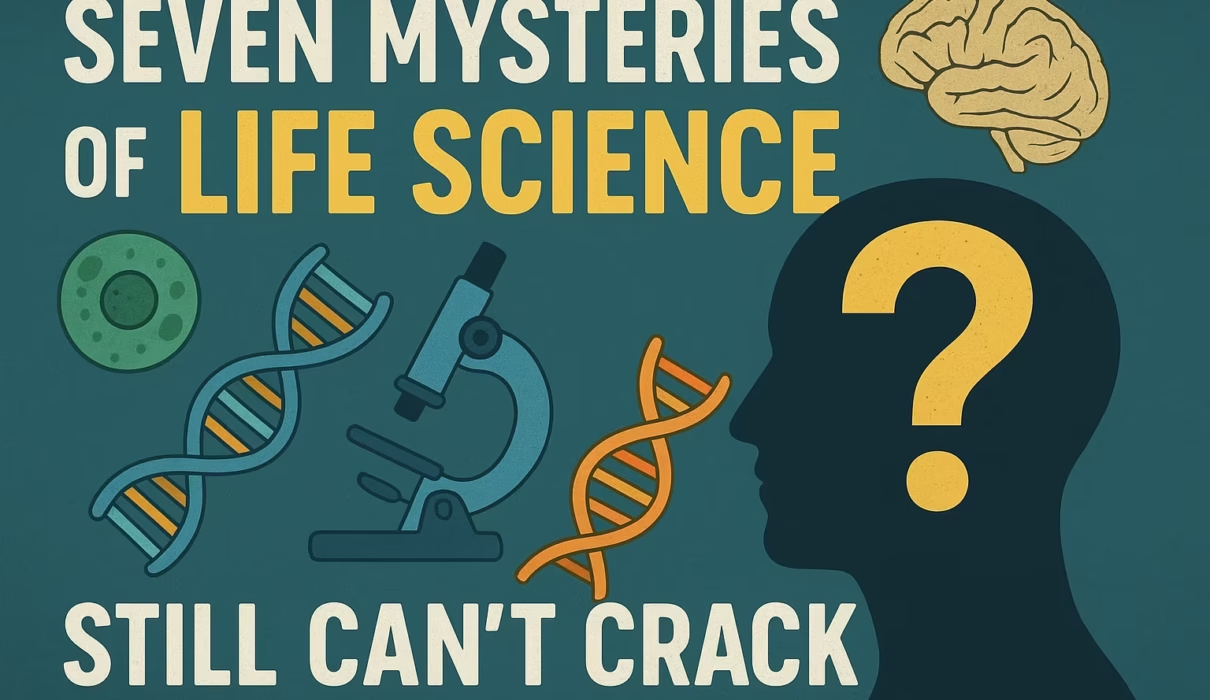From the nightly drama in our brains to the very manner in which our bodies decay over the years, some of humankind’s most familiar experiences are profound scientific mysteries. We encounter these every day of our lives, and yet the final “why” and “how” remain elusive to our finest scientists.
Here are seven of the most intriguing questions related to human biology and the natural world that science is still struggling to fully explain:
1. Why Do We Dream?

The vivid, nonsensical stories that unfold during REM sleep are a steady source of awe and frustration for researchers. Though we’ve mapped out the brain activity while dreaming, their purpose remains unknown. The best current theories are that they are necessary for:
Memory Consolidation: Assisting the brain to sort, process, and store the happenings of the day.
Emotional Regulation: Enabling us to process extreme or traumatic events in a secure environment.
“Offline” Problem Solving: Trying out various scenarios and reactions in a safe environment.
2. Why Do We Age?

We’re all aware we get older, but is it a thoughtful program or merely an accumulation of wear and tear? Scientists have mapped many mechanisms, such as the telomere shortening (caps on our DNA) and senescent (“zombie”) cell increase. But the underlying question is: Is aging an evolutionary requirement or merely a biological imperfection that can someday be “cured” or severely slowed?
3. Why Do Humans Have Dominant Hands?

The world is overwhelmingly right-handed (about 90% of the population), yet there is no clear evolutionary advantage to this preference. Handedness is closely linked to brain lateralization—the specialization of the two hemispheres—but the exact combination of genetic and environmental factors that steers a person toward one hand over the other is not fully understood.
4. Why Do Whales Beach Themselves?

Mass beachings of whales and dolphins are tragic and confounding. Although illness or injury may be the explanation in some, the causes of wholesale, apparently healthy strandings are unknown. The most popular theories are:
Navigational Mistakes: Getting lost in shallow water or by unfamiliar coastlines.
Underwater Noise: Perturbation of their sonar (echolocation) by human-generated noise such as naval sonar or seismic surveys, leading them to panic and swim towards land.
Geomagnetic Disturbances: Whales might be using the Earth’s magnetic field for navigation, and local anomalies can disorient them.
5. Why Do People Wake Right Before Their Alarm?

That spooky skill to wake up a minute before the dreaded beep is a testament to your circadian rhythm (your internal body clock). If you’re expecting to wake up at a specific time, your brain anticipates the alarm by inducing a stress response. It releases ACTH and cortisol, putting your body into action mode and getting you up from sleep in one smooth transition. The accuracy with which the brain “times” this process, however, is a biological wonder we can’t fully account for.
6. Why Is Yawning Contagious?

The first reason we yawn is probably to cool the brain, but the mystery is why one yawn can be contagious across a room. The most accepted explanation is that it is an automatic act of empathy or social connection, fueled by mirror neurons in the brain. Our brains react as if we were yawning when we observe another person yawning, showing a strong link between our state and another’s.
7. Why Do We Have Déjà Vu?

The French word “déjà vu” captures the strange feeling of experiencing a fresh moment before. Researchers think that it might be a glitch in the processing of information by the brain, which could be the result of a temporary “misfiring” between the components of the brain responsible for memory and perception. It is possible that the brain temporarily gets confused between short-term and long-term memory and thinks that it experienced something before.
These seven questions recall that even the most basic things about our lives are still open to exploration. Science has advanced incredibly, but the most personal secrets of the human brain and nature itself still have the greatest obstacles.


